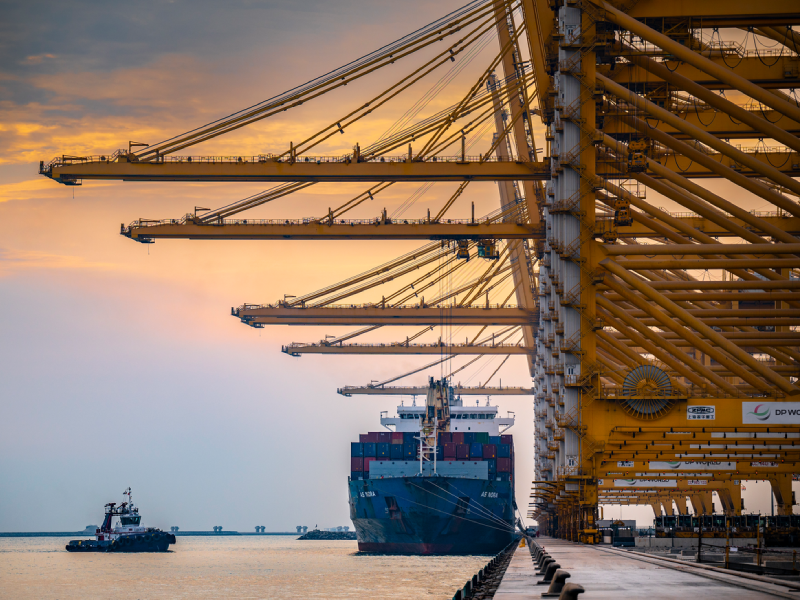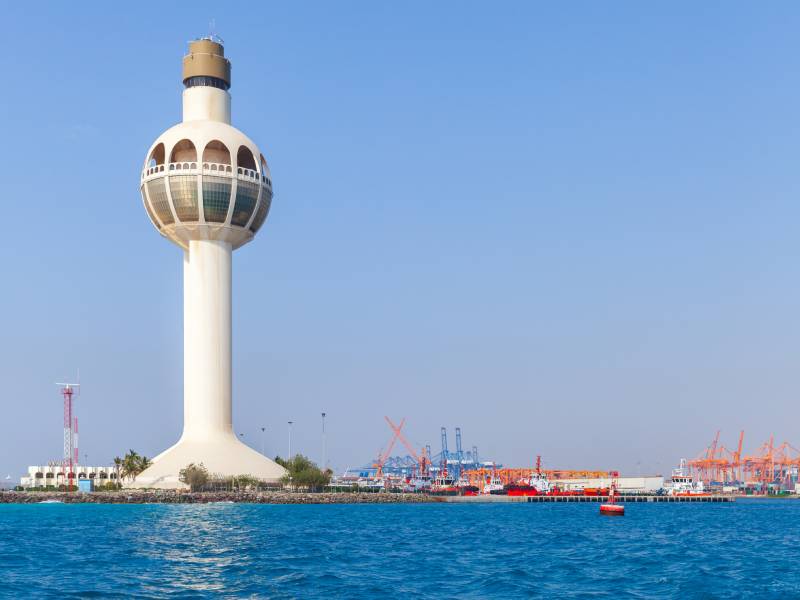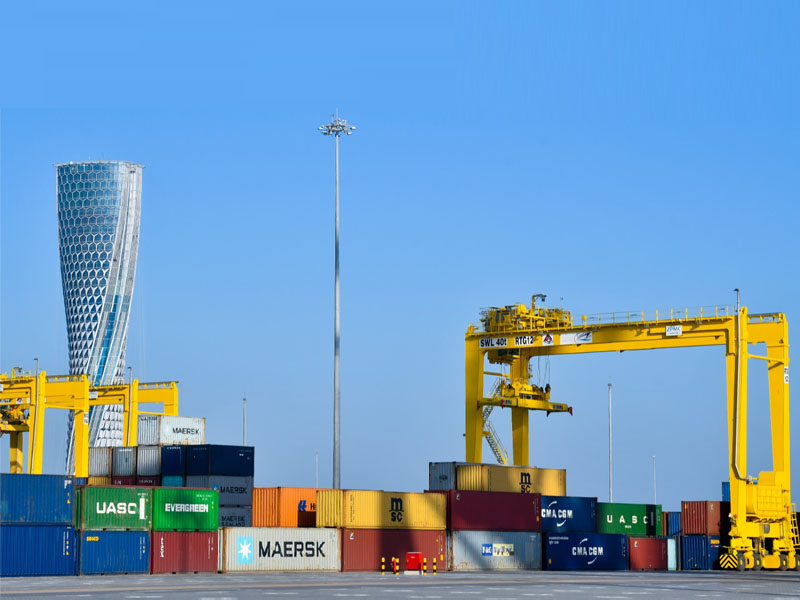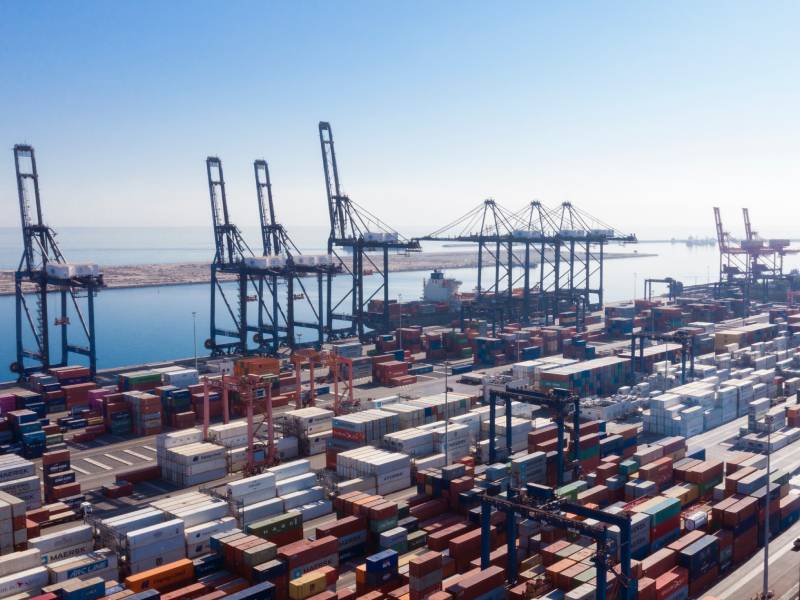Nestled along the alluring coastline of Dubai, Jebel Ali Port stands as a beacon of maritime brilliance, wielding a plethora of remarkable features that define it as a pivotal business hub. This article unveils the exceptional advantages of this port and its instrumental role in fortifying Dubai’s economy and international trade.
Unravelling the Key Features
- A Gateway to the Globe: Situated between Rotterdam and Singapore, Jebel Ali Port is the region’s largest port, a vital distribution centre and conduit for global trade. Its deep-sea harbour boasts the unparalleled capacity to handle colossal container vessels, facilitating seamless trade connections.
- Specialised Infrastructure: Boasting 9,665 square meters of cutting-edge cold storage floor space, the port caters exclusively to perishable cargo with specialised storage demands. This state-of-the-art facility ensures the secure transportation of delicate goods.
- A Haven for Large Cargo Vessels: Jebel Ali Port houses the renowned General Cargo Terminal, encompassing 1.4 million square meters with 27 berths and a 15-meter quayside depth. This impressive infrastructure accommodates large and unique cargo vessels with utmost ease.
- A Vehicle Oasis: The port’s expansive storage yard efficiently handles over 1 million vehicle units annually, showcasing its versatility and dedication to fulfilling diverse trade demands.
Empowering Dubai’s Economy and Trade
Jebel Ali Port has played a pivotal role in catapulting Dubai to global economic prowess, becoming a cornerstone of its international trade landscape.
- Connecting Dubai to the World: Jebel Ali Port’s far-reaching trade connections have substantially elevated Dubai’s global footprint. By fostering seamless trade, it has unlocked access to markets worldwide, elevating Dubai’s economic standing.
- Impressive Trade Volume Growth: Recent years have witnessed a steady surge in the port’s trade volume, reaching a record-breaking 14.0 million TEU in 2022. This surge has spurred economic prosperity and boosted various sectors within the emirate.
- Engine of Job Creation: Jebel Ali Port’s operations have generated substantial employment opportunities, nurturing a skilled workforce across sectors like logistics, hospitality, and more. This diversification has fortified Dubai’s economic resilience.
- Diversification Beyond Oil and Gas: The port’s proximity to Jafza has encouraged industrial growth, enabling Dubai’s economy to diversify beyond traditional sectors, solidifying its position as a multifaceted business hub.
Pioneering Efficiency through Technology
A commitment to cutting-edge technologies drives the port’s relentless pursuit of efficiency. Discover how DP World ensures seamless vessel arrivals, departures, and cargo handling processes.
- Dubai Trade Platform: The port leverages the Dubai Trade platform for over 700 services, streamlining online transactions, import/export, and customs procedures. This digital approach minimises paperwork and processing time, expediting goods movement.
- Embracing Automation: Automated quay cranes and state-of-the-art technologies optimise container handling, such as Big Data and IoT systems. Real-time cargo tracking ensures visibility and control over movements, bolstering overall efficiency.
- The ‘Zodiac’ Revolution: At Container Terminal 3, the ‘Zodiac’ automated system transforms port operations. This comprehensive terminal operating system integrates various functions and streamlines planning, trade flow, and operational excellence.
- Collaborative Spirit: Collaborating with supply chain stakeholders has fostered streamlined processes and data exchange systems, reduced delays and enhanced coordination.
Nurturing Environmental Sustainability
Despite being a bustling trade hub, Jebel Ali Port remains deeply committed to environmental sustainability. DP World has implemented initiatives to reduce the port’s carbon footprint.
- Real-Time Locating System (RTLS): The RTLS enhances container efficiency and reduces costs by enabling remote monitoring, troubleshooting, and improved safety, thus contributing to reduced emissions and enhanced environmental stewardship.
- Embracing Electric Terminal Trucks: The transition to fully electric trucks in the Electrical Terminal Trucks project significantly curtailed the port’s carbon footprint, demonstrating a remarkable commitment to sustainable practices.
Building for the Future
Jebel Ali Port is perpetually evolving to cater to the burgeoning demands of trade and shipping. DP World remains steadfast in expanding and enhancing the port’s capabilities.
- Infrastructure Enhancements: Constant investments in infrastructure and operational optimisations bolster efficiency and handling capacity.
- Advanced Container Handling Equipment: Deployment of cutting-edge container handling equipment caters to larger vessels and ensures seamless operations.
- Exploring Expansion Possibilities: Feasibility studies explore potential harbour channel and berth dredging to accommodate future needs.
Enabling Seamless Connectivity
- Extensive Connectivity: Jebel Ali Port offers seamless access to over 180 shipping lines, connecting to more than 3.5 billion consumers worldwide.
- A Sea-Air Bonded Corridor: The dedicated sea-air customs bonded corridor expedites cargo transition from sea to air within 45 minutes.
- Thriving Business Ecosystem: Adjacent to the port lies Jebel Ali Free Zone (JAFZA), an enticing business ecosystem hosting over 9,500 companies from 130 countries, offering incentives that foster a business-friendly environment.
- Comprehensive Transportation Network: The port’s excellent road connectivity and proximity to the Dubai Metro Red Line and major airports ensure efficient multimodal transportation options.
Celebrating Remarkable Achievements
- A Transformative Partnership: DP World’s collaboration with A.P. Moller-Maersk has driven operational improvements and decarbonisation efforts, exemplifying a commitment to sustainable practices.
- The Best Seaport in the Middle East: Jebel Ali Port’s unparalleled excellence has earned it the prestigious title of the Best Seaport in the Middle East for an astounding 28 consecutive years, as recognised by the Asian Freight, Logistics, and Supply Chain Awards (AFLAS).




